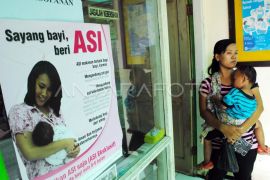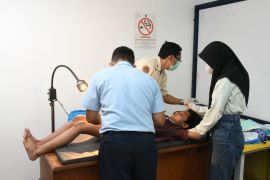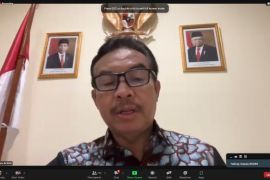If we target to only reduce half (of the prevalence rate), then about two million stunted toddlers throughout Indonesia must be treated.Jakarta (ANTARA) - The National Population and Family Planning Agency (BKKBN) has urged village heads to make optimum use of four existing funding sources to reduce the prevalence of stunting in their respective regions.
The prevalence rate of stunting in Indonesia is still quite high at 21.6 percent, BKKBN Head Hasto Wardoyo noted at the “Webinar Series 2 on Good Practices of Stunting-free Village (De'Best) in the First 1,000 Days of Life (HPK)” on Wednesday.
He estimated that the number of stunted children has currently reached 4.6 million.
"If we target to only reduce half (of the prevalence rate), then about two million stunted toddlers throughout Indonesia must be treated,” he pointed out.
Meanwhile, according to data from Statistics Indonesia (BPS), the total number of villages in Indonesia stood at 83,794 in 2022.
Thus, each village will have to handle about 23 children aged under five years, depending on the total population in the village, the BKKBN head said.
Furthermore, about 4.8 million women get pregnant per year in Indonesia, thus each village will only need to assist about 58 pregnant women each year in fulfilling their nutritional needs so that they can give birth to healthy babies, he pointed out.
According to this estimation, the handling of stunting will not be difficult, especially if village heads can optimize four funding sources provided by the central government, he said.
The sources comprise the Family Hope Program (PKH) assistance, Non-Cash Food Assistance (BPNT), Special Allocation Fund (DAK), as well as Village Fund, he added.
Wardoyo also asked village governments to carefully record the details of any toddlers whose height and weight are far below standard, based on an examination at integrated health posts (posyandu), and who do not receive PKH assistance.
"Thus, the village heads must be active (in monitoring the growth of the children), supported by the PKK (Family Welfare Development) cadres, Family Assistance Team (TPK), and family planning counselors…,” he emphasized.
Moreover, the Health Ministry has allocated a budget from DAK to provide additional food (PMT) for stunted children through community health centers (puskesmas), the BKKBN head said.
Therefore, he asked each village head to check the distribution of the assistance so that stunting reduction efforts, including the children’s health screening and provision of PMT, can be carried out right on target.
Translator: Hreeloita Shanti, Uyu Liman
Editor: Rahmad Nasution
Copyright © ANTARA 2023












